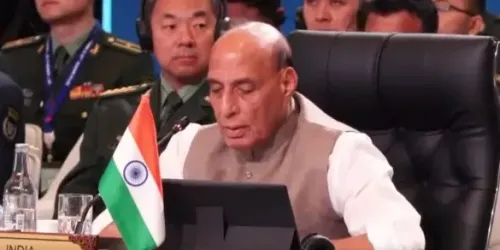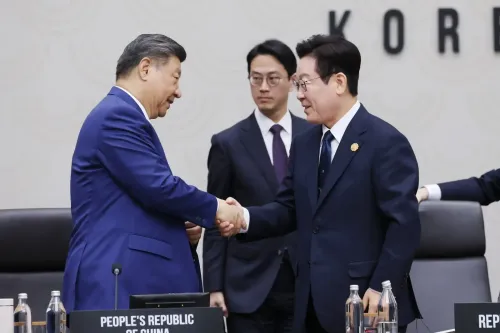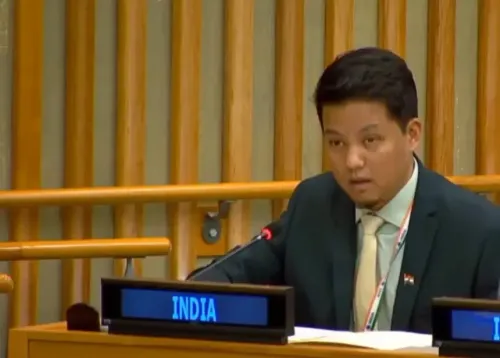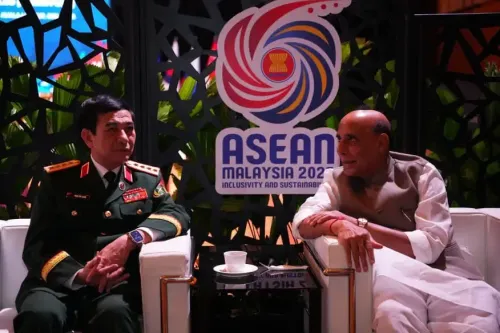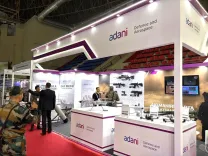How are India and Australia Enhancing Cooperation in Amphibious Operations and UAS?
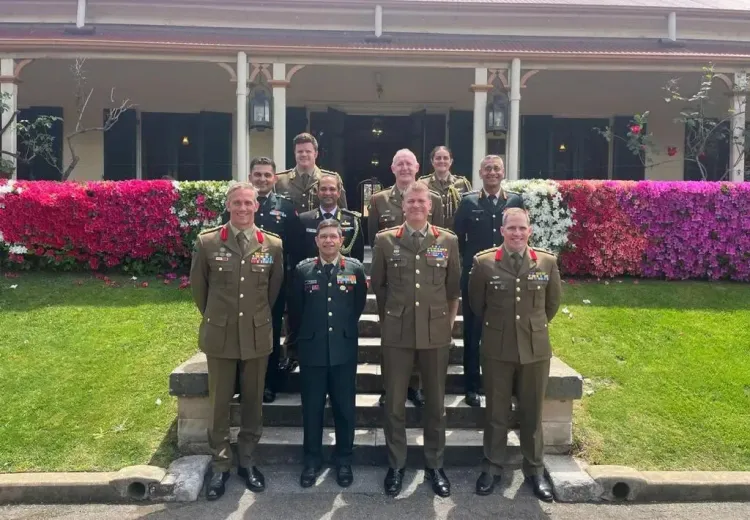
Synopsis
Key Takeaways
- Strengthened Military Cooperation: Focus on Amphibious Operations and UAS.
- Commitment to Regional Stability: Both nations emphasize the importance of maintaining peace.
- Counter-Terrorism Strategies: Collaborative efforts to address terrorism and extremism.
- Honoring Shared History: The Indian delegation paid respects at the Australian War Memorial.
- Comprehensive Strategic Partnership: Ongoing discussions to enhance bilateral ties.
Canberra, Oct 31 (NationPress) On Friday, India and Australia wrapped up their Army-to-Army Staff talks in Canberra, where they engaged in dialogues aimed at enhancing cooperation in Amphibious Operations and Unmanned Aircraft Systems (UAS).
The Army-to-Army Staff Talks took place in Canberra from October 29 to 31, 2025. The discussions highlighted the expanding collaboration between the armies of both nations, with a particular emphasis on new avenues in Amphibious Operations and UAS. Both parties reiterated their dedication to maintaining regional stability. The Indian delegation also honored fallen heroes at the Australian War Memorial and toured the Royal Military College Duntroon, as per a statement from the Indian Army's Additional Directorate General of Public Information (ADGPI) on X.
On the preceding day, both nations successfully concluded the 15th session of the Joint Working Group (JWG) on Counter Terrorism in Canberra, where they examined strategies to bolster cooperation in fighting terrorism, radicalization, and violent extremism.
During this meeting, officials from both countries discussed the evolving landscape of domestic, regional, and international terrorism, exchanging insights on various collaborative efforts in counterterrorism, law enforcement, judicial cooperation, and maritime security. The meeting was co-chaired by MEA Joint Secretary (Counter Terrorism) Vinod Bahade and Australia’s Ambassador for Counter-Terrorism Gemma Huggins, according to a statement from the Ministry of External Affairs (MEA).
Both countries condemned the brutal terrorist attack on April 22, 2025, in Pahalgam, with Australia expressing its unwavering support for India. They acknowledged the necessity of enhancing cooperation to effectively tackle the challenges posed by terrorism, emphasizing the importance of timely information sharing and coordinated actions against the misuse of emerging technologies for terrorist activities. They also discussed strategies to combat radicalization and extremist violence.
On October 10, Australia's High Commissioner to India, Philip Green, announced the successful conclusion of a Cadet Exchange Programme at the Royal Military College in Duntroon, stating, "The camaraderie, leadership, and military acumen between our armies are continually evolving! The cadets from the Indian Military Academy finished their Cadet Exchange Programme at the Royal Military College, Duntroon, engaging in a rigorous training regime while commemorating our shared military heritage," as posted on X.
Earlier, on October 9, Defence Minister Rajnath Singh and Australia's Minister for Foreign Affairs Penny Wong convened in Canberra to discuss strengthening the growing Comprehensive Strategic Partnership. Penny Wong referred to India and Australia as the "joint custodians" of the Indian Ocean.
The Ministry of Defence provided further details, stating, "Raksha Mantri Shri Rajnath Singh met with Australia’s Foreign Minister Penny Wong in Canberra. The leaders deliberated on ways to fortify the burgeoning India–Australia Comprehensive Strategic Partnership and enhance cooperation across vital sectors such as trade, technology, connectivity, and regional security."

